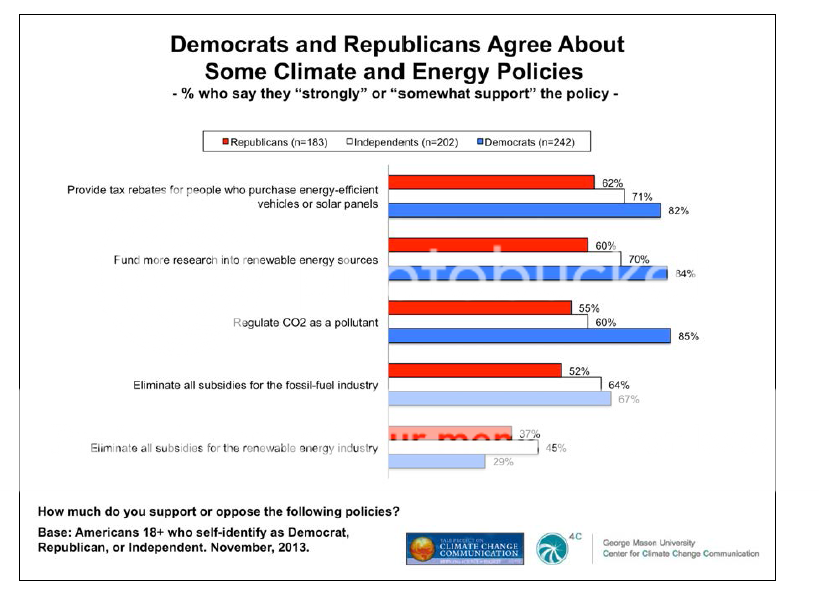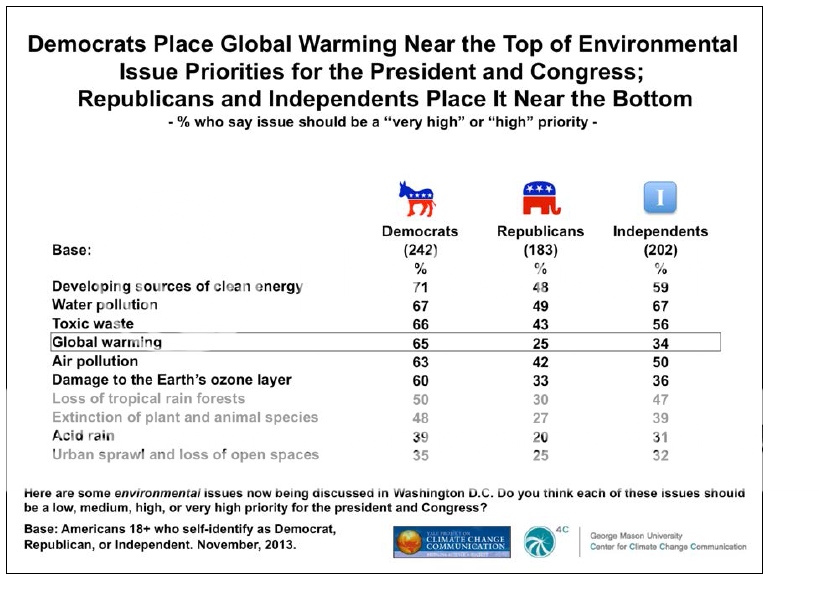The report does show that a majority of Republicans support regulating carbon pollution. But it also shows why that doesn't mean anything.
Look at the chart below.

A majority of Republicans support treating carbon as a pollutant and policies that help shift the economy away from fossil fuels to renewable energy. Sounds great, right?
Don't get your hopes up.
First of all, Republicans just don't see global warming as an important issue.

As you can see, only 19% of Republicans and 25% of Independents deemed global warming a "high" or "very high" priority for the president and Congress. Global warming was the least important issue to Republicans. It was second least important to Independents (abortion was least important).
Only 57% of Democrats saw global warming as a "high" or "very high" priority. That, again, is depressingly low, given the severity of the problem.
Partisan differences are also sharp in ranking global warming among environmental issues:

Republicans viewed it as the second least important of the issues listed; Independents, the third least important.
For Democrats, it was one of the six issues with supermajority (60%+) concern. Only one issue--water pollution--saw supermajority concern among Independents, and two others--clean energy and toxic waste--saw majority concern. No issue registered majority concern among Republicans.
Revealing, though hardly surprising, was how channeling an issue through a partisan lens affected levels of support:

Both questions included the following language:
“…strict carbon dioxide emission limits on existing coal-fired power plants to reduce climate change and improve public health. Power plants would have to reduce their emissions and/or invest in renewable energy and energy efficiency. The cost of electricity to consumers and companies would likely increase.”When the policy was presented outside of a partisan frame, majorities of Democrats (75%), Republicans (51%), and Independents (60%) supported it.
But when Obama entered the picture, things changed. The Democratic margin of support rose by six points (+50 to +56). The Republican margin of support fell by 36 points (+3 to -33). The Independent margin of support fell by 20 points (20 to 0).
Public opinion is heavily influenced by partisan cues. This reminded me of a fascinating (although depressing) article by Geoffrey Cohen, "Party over Policy: The Dominating Impact of Group Influence on Political Beliefs." He showed how liberals would support stringent welfare policies if told that Democrats supported them and that Republicans would support generous welfare policies if told that Republicans supported them. The effect of party reference group overrode substantive content for both groups.
If you can accomplish that with partisan cues, then getting Republicans to oppose a Democratic policy that they only weakly support is quite easy.
When public support is broad but shallow (and malleable) and the pockets of fossil fuel companies are narrow but very, very deep, how do you think politicians will respond?
No comments:
Post a Comment